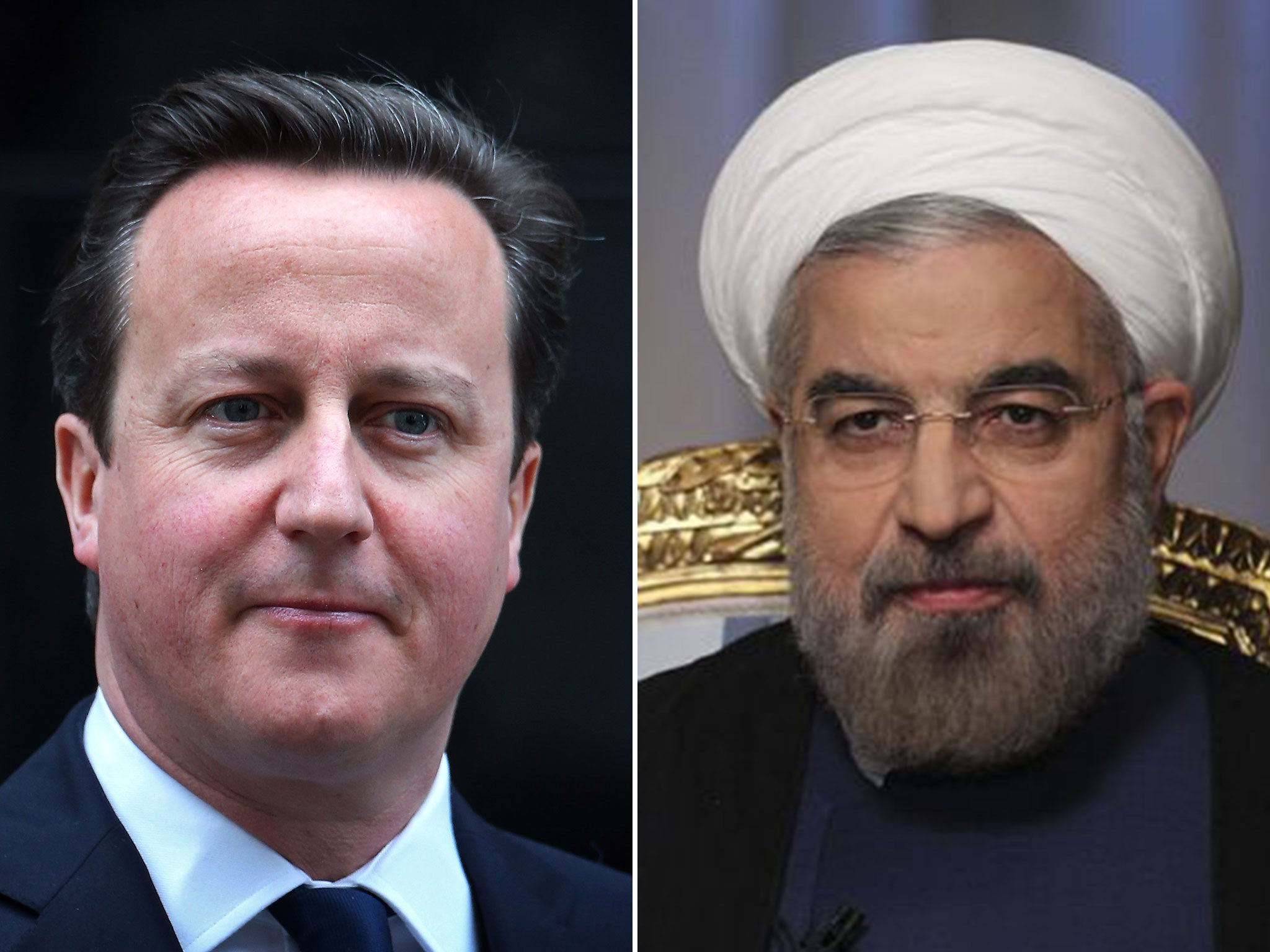Islamic State: David Cameron to meet Iran’s President to discuss Isis threat

Your support helps us to tell the story
From reproductive rights to climate change to Big Tech, The Independent is on the ground when the story is developing. Whether it's investigating the financials of Elon Musk's pro-Trump PAC or producing our latest documentary, 'The A Word', which shines a light on the American women fighting for reproductive rights, we know how important it is to parse out the facts from the messaging.
At such a critical moment in US history, we need reporters on the ground. Your donation allows us to keep sending journalists to speak to both sides of the story.
The Independent is trusted by Americans across the entire political spectrum. And unlike many other quality news outlets, we choose not to lock Americans out of our reporting and analysis with paywalls. We believe quality journalism should be available to everyone, paid for by those who can afford it.
Your support makes all the difference.David Cameron will this week become the first British Prime Minister to hold face-to-face talks with an Iranian leader since the country’s revolution in 1979, Downing Street has announced.
The meeting with President Hassan Rouhani will take place on the fringes of the UN General Assembly in New York as part of attempts by Britain and the US to bring together as broad a coalition as possible in the fight against Isis militants in Iraq and Syria. However, the meeting will cause dismay in Israel as well as Sunni countries in the Gulf as it will be seen as a proxy for talks between President Rouhani and the US administration.
In an attempt to head off criticism, Downing Street last night said the focus would be to urge the Iranians to drop their support for the Syrian President Bashar al-Assad, a man they said has created the conditions that have allowed terrorism to flourish. Mr Cameron would also send a clear message that Iran needs to show “flexibility” about the future scope of its nuclear programme if a deal is to be done to ease economic sanctions. “We are under no illusion about the dangers of Iran’s nuclear programme and our approach is not changing,” said a Downing Street source.
“However, if Iran is willing to join the international community to defeat Isil, then we will work with them on that but will be clear that you cannot take one approach in Baghdad and another in Damascus. You need a political solution in both if you are serious about defeating Isil.”
Foreign Secretary Philip Hammond met his Iranian counterpart, Mohammed Javad Zarif, yesterday in New York. He said he raised concerns about the country’s human rights record and its nuclear programme.
Last year, Barack Obama and Mr Rouhani held a historic telephone call after the UN meeting but the White House has said it does not expect the two to meet this year. More likely, Mr Cameron is acting as Washington’s de facto representative and will convey a message to Tehran that support against Isis and a change of position towards Assad will make a nuclear deal more likely.
Join our commenting forum
Join thought-provoking conversations, follow other Independent readers and see their replies
Comments